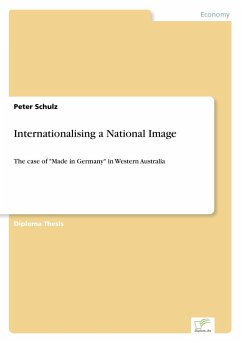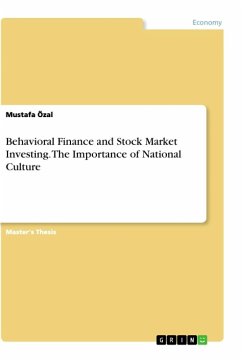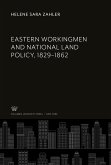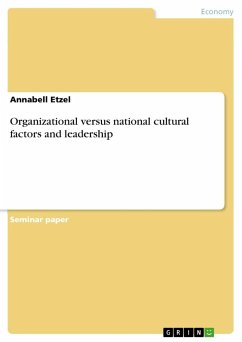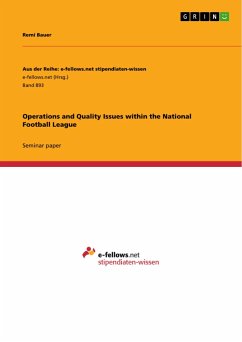Diploma Thesis from the year 2002 in the subject Business economics - Trade and Distribution, grade: 1,0, Aachen University of Applied Sciences (Wirtschaft), language: English, abstract: Inhaltsangabe:Abstract:
"Made in Germany" is often regarded to be a guarantor for quality and reliability and German companies have a global reputation for manufacturing products that are superior to products of companies with a non-German identity.
This thesis analyses the internationalisation process of the national image of "Made in Germany" with particular regard to Western Australia. The thesis starts with an assessment of recent developments in the global business environment before going on to highlight internationalisation strategies in general and the specific impact of culture on internationalisation. Subsequently, the paper focuses on the German context by presenting issues associated with the identity commonly attributed to Germans, including national identity, German culture, and German management styles and principles. An evaluation of the "country-of-origin" phenomenon, with a specific look at the case of "Made in Germany", and an assessment of German companies in the international arena conclude the section on the German context. A further focus of the thesis is the connection between Germany and Australia, specifically the attractiveness of the Western Australian market and German business presence in Australia.
The method of research consists of two major parts: a theoretical framework and a empirical analysis. The theoretical framework is based on a study of literature and provides the foundation necessary for the empirical analysis. The empirical analysis consists of the collection of primary data by means of a questionnaire and the statistical interpretation thereof. The questionnaire was specifically compiled for this thesis.
Findings of the paper include that "Made in Germany" is generally considered to be a competitive advantage over companies with a non-German national identity. Both the theoretical framework and the empirical analysis indicate that the national image of Germany and its accompanying positive reputation has been introduced successfully to Western Australia, although German companies operating within Australia seem to adopt a "Be German, Act Australian" approach. A German dominance prevails in the ownership of the organisation while nationality of staff, in-house business culture and management styles and principles are predominantly non-German/Australian. Respondents thus act and are global and local at the same time.
Inhaltsverzeichnis:Table of Contents:
List of Tables and Figuresiii
Executive Summaryiv
1.Introduction
1.1Statement of the problem1
1.2Relevancy1
1.3Method of research3
1.4Demarcation of the study field3
1.5Composition of the thesis4
2.Globalisation and internationalisation strategies
2.1Globalisation 6
2.1.1The international business environment
16 2.1.2Defining globalisation 8
2.1.3Driving forces of globalisation10
2.1.4Consequences of globalisation14
2.2Globalisation and the business environment15
2.2.1Implications of globalisation for companies15
2.2.2Motivations for companies to globalise23
2.2.3Multinational versus global competition25
2.3Internationalisation/globalisation strategies - planning and implementation28
2.3.1The strategic planning process29
2.3.2The implementation process41
2.4Culture and its impact on strategy43
3.German context
3.1German national identity46
3.2German culture49
3.3German management systems and principles56
3.4The role of country-of-origin61
3.4.1"Made in Germany" as a cue64
3.5German companies in the international arena65
4.Germany and Western Australia
4.1Western Australia as a market68
4.2The link between Germany...
Hinweis: Dieser Artikel kann nur an eine deutsche Lieferadresse ausgeliefert werden.
"Made in Germany" is often regarded to be a guarantor for quality and reliability and German companies have a global reputation for manufacturing products that are superior to products of companies with a non-German identity.
This thesis analyses the internationalisation process of the national image of "Made in Germany" with particular regard to Western Australia. The thesis starts with an assessment of recent developments in the global business environment before going on to highlight internationalisation strategies in general and the specific impact of culture on internationalisation. Subsequently, the paper focuses on the German context by presenting issues associated with the identity commonly attributed to Germans, including national identity, German culture, and German management styles and principles. An evaluation of the "country-of-origin" phenomenon, with a specific look at the case of "Made in Germany", and an assessment of German companies in the international arena conclude the section on the German context. A further focus of the thesis is the connection between Germany and Australia, specifically the attractiveness of the Western Australian market and German business presence in Australia.
The method of research consists of two major parts: a theoretical framework and a empirical analysis. The theoretical framework is based on a study of literature and provides the foundation necessary for the empirical analysis. The empirical analysis consists of the collection of primary data by means of a questionnaire and the statistical interpretation thereof. The questionnaire was specifically compiled for this thesis.
Findings of the paper include that "Made in Germany" is generally considered to be a competitive advantage over companies with a non-German national identity. Both the theoretical framework and the empirical analysis indicate that the national image of Germany and its accompanying positive reputation has been introduced successfully to Western Australia, although German companies operating within Australia seem to adopt a "Be German, Act Australian" approach. A German dominance prevails in the ownership of the organisation while nationality of staff, in-house business culture and management styles and principles are predominantly non-German/Australian. Respondents thus act and are global and local at the same time.
Inhaltsverzeichnis:Table of Contents:
List of Tables and Figuresiii
Executive Summaryiv
1.Introduction
1.1Statement of the problem1
1.2Relevancy1
1.3Method of research3
1.4Demarcation of the study field3
1.5Composition of the thesis4
2.Globalisation and internationalisation strategies
2.1Globalisation 6
2.1.1The international business environment
16 2.1.2Defining globalisation 8
2.1.3Driving forces of globalisation10
2.1.4Consequences of globalisation14
2.2Globalisation and the business environment15
2.2.1Implications of globalisation for companies15
2.2.2Motivations for companies to globalise23
2.2.3Multinational versus global competition25
2.3Internationalisation/globalisation strategies - planning and implementation28
2.3.1The strategic planning process29
2.3.2The implementation process41
2.4Culture and its impact on strategy43
3.German context
3.1German national identity46
3.2German culture49
3.3German management systems and principles56
3.4The role of country-of-origin61
3.4.1"Made in Germany" as a cue64
3.5German companies in the international arena65
4.Germany and Western Australia
4.1Western Australia as a market68
4.2The link between Germany...
Hinweis: Dieser Artikel kann nur an eine deutsche Lieferadresse ausgeliefert werden.

